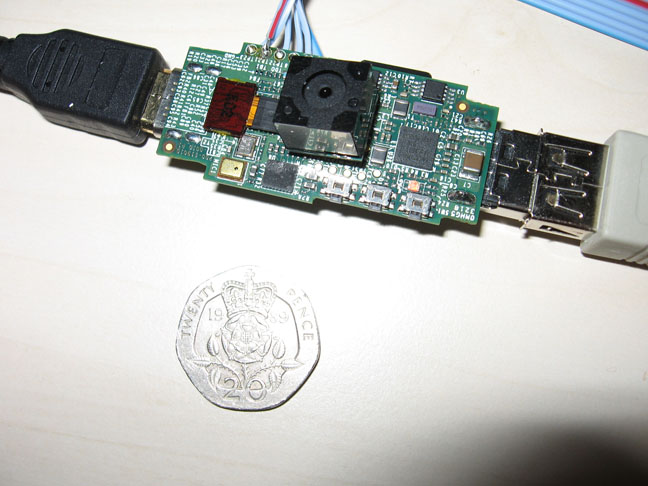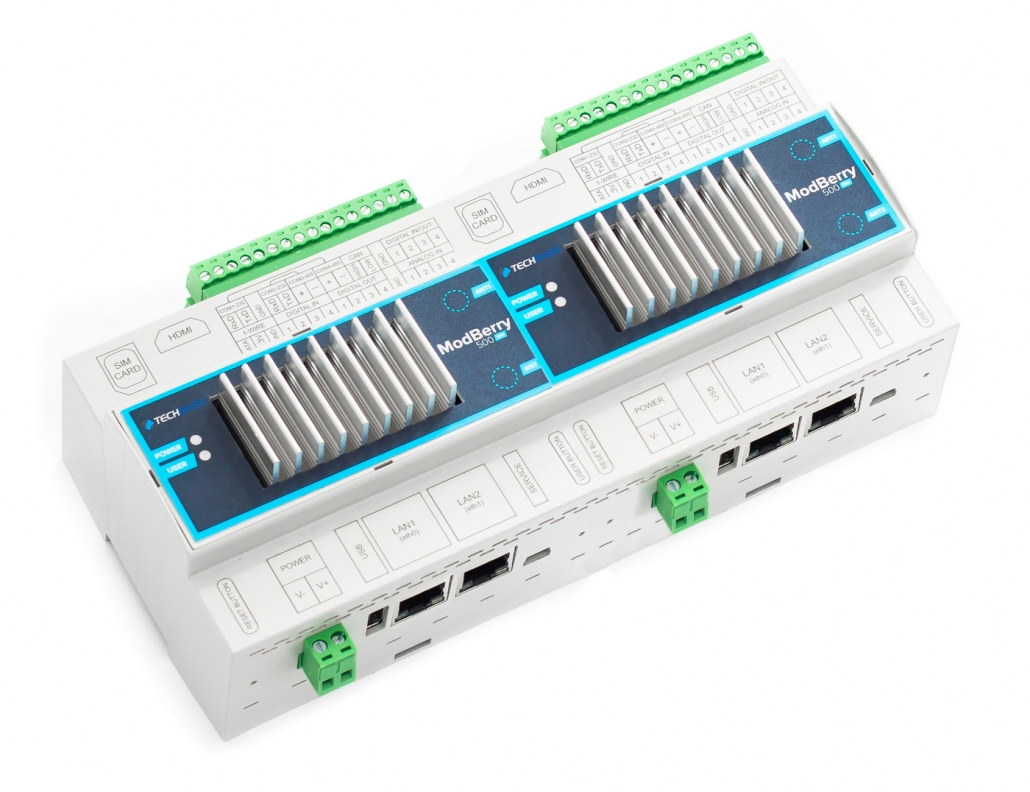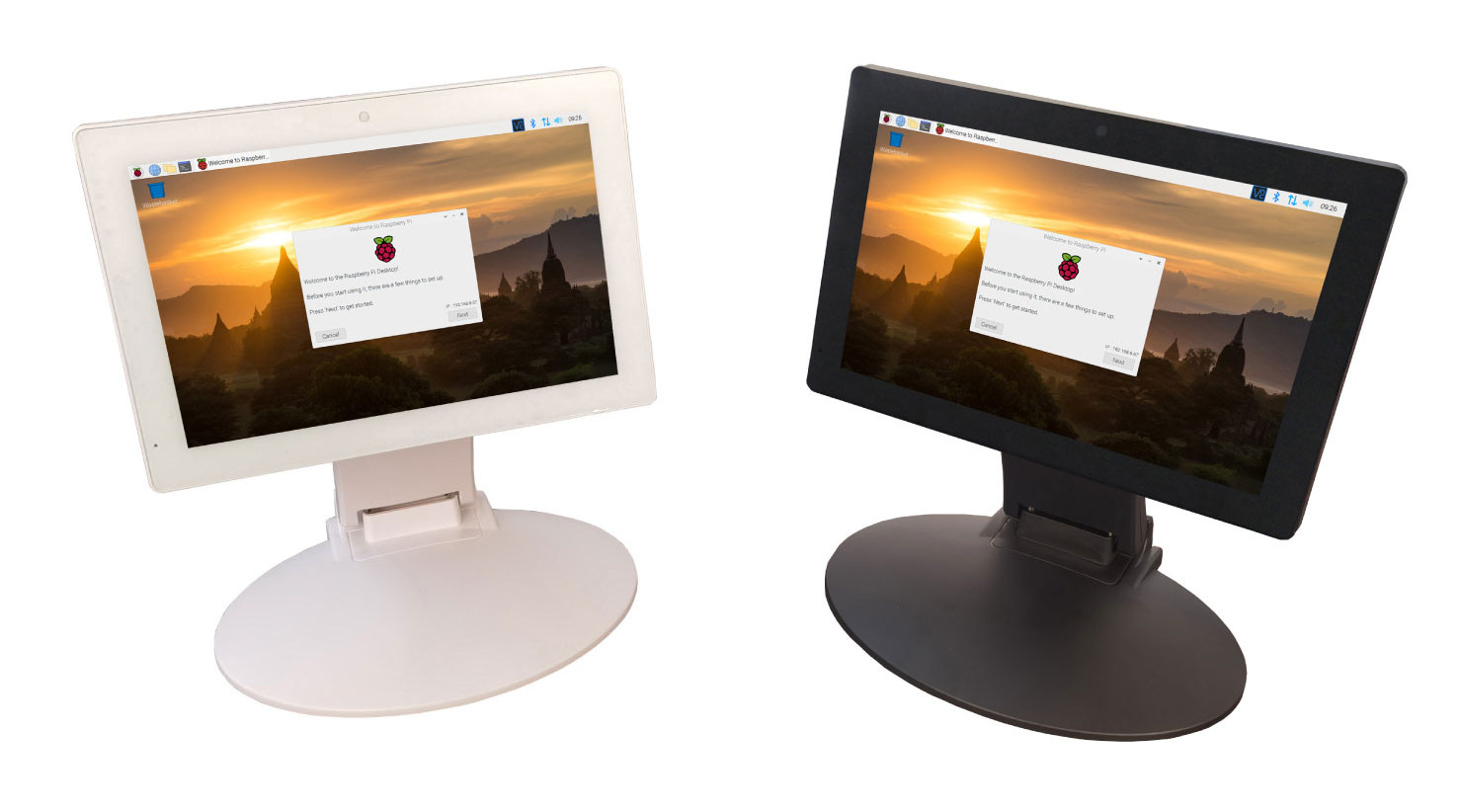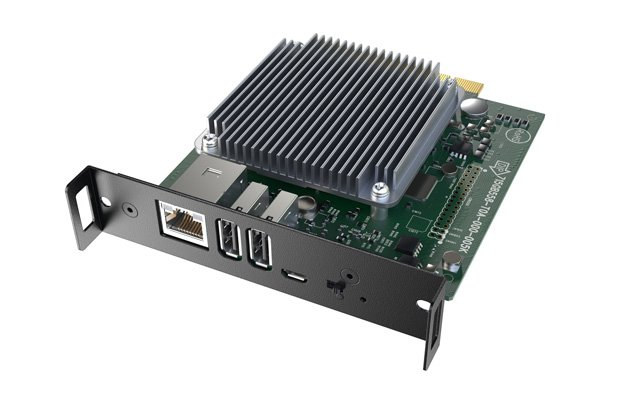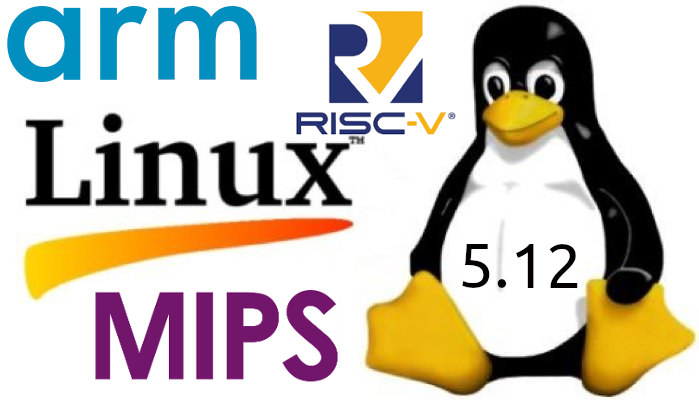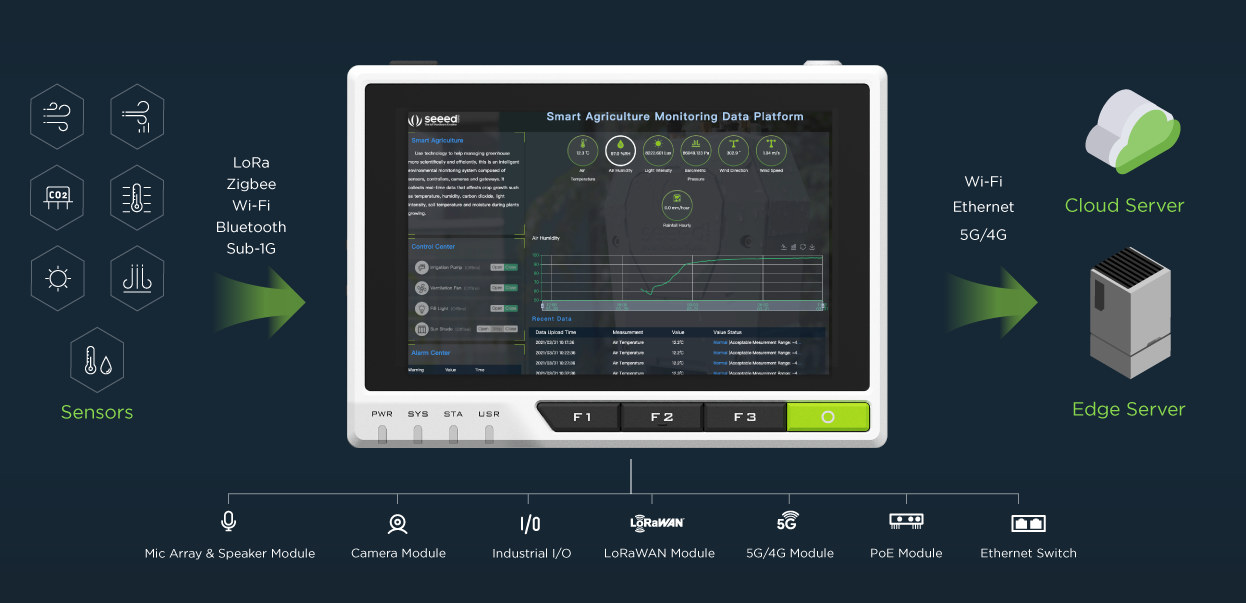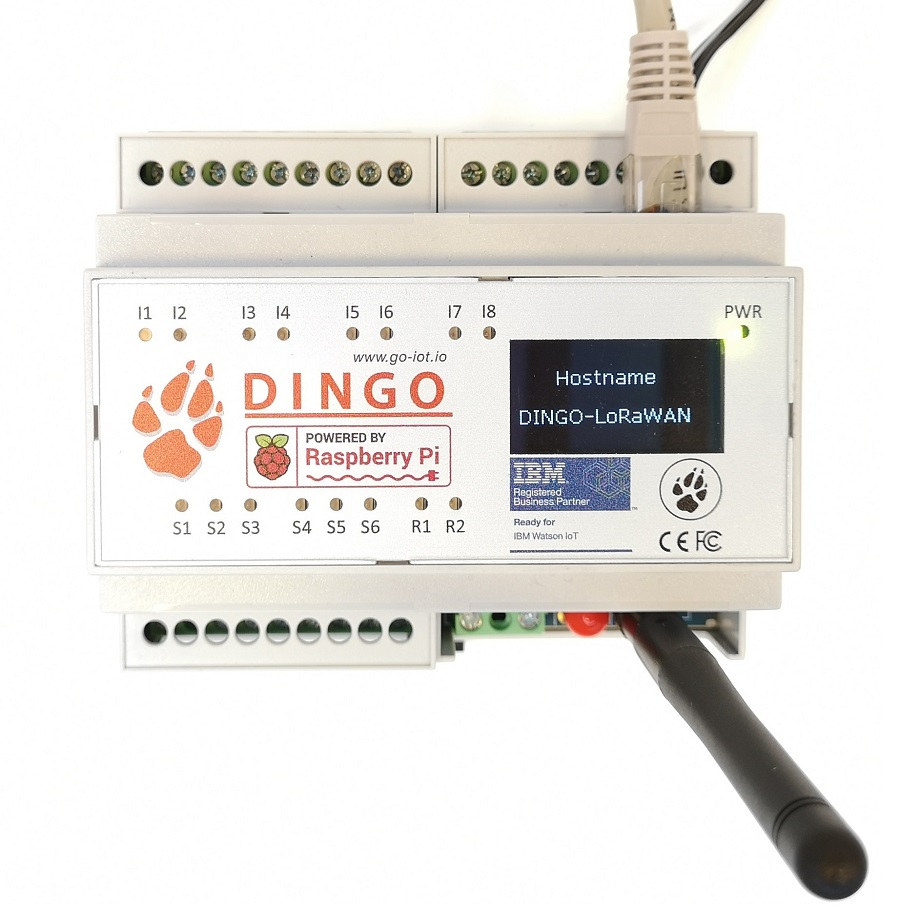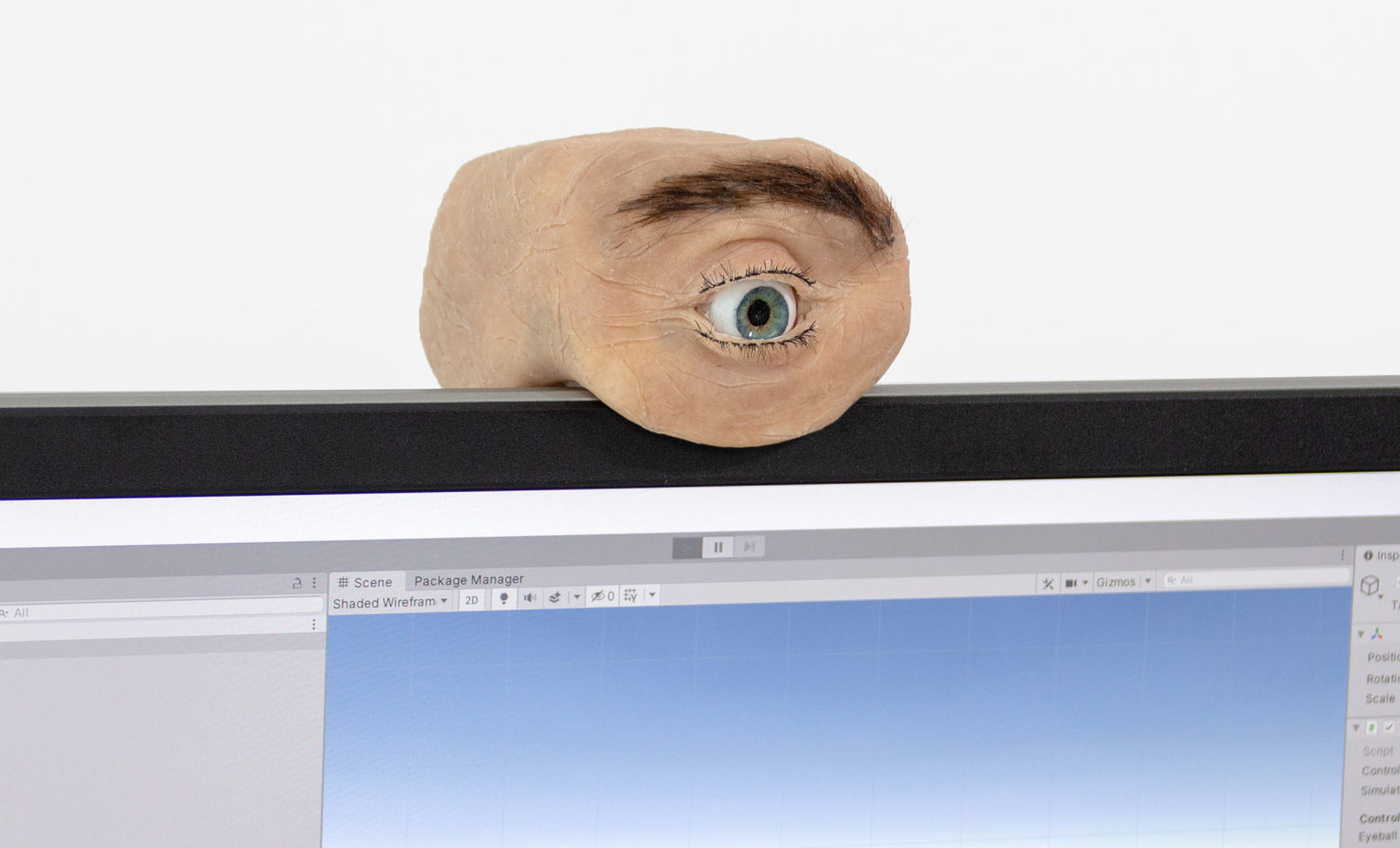The first Raspberry Pi single board computer was officially launched on February 29, 2012. Raspberry Pi Model B included a Broadcom BCM2835 ARM11 processor with 256 RAM, an HDMI port, and the familiar form factor we know today. But the very first time I wrote about the board was on May 8, 2011, exactly ten years ago, with a post entitled “25 USD ARM11 Linux Computer” showing the prototype of Raspberry Pi USB Computer that looks nothing like what was launched the next year. This just looked like a stick with an HDMI port on one hand and a USB port at the other. We did not even know it was based on a Broadcom processor at the time. Those were the preliminary specifications: CPU – 700MHz ARM11 processor GPU – OpenGL ES 2.0 capable Memory – 128MB of SDRAM Storage – SD/MMC/SDIO memory card slot Video & Audio Outputs […]
ClusBerry-2M Industrial IoT controller takes two Raspberry Pi Compute Modules 4
Earlier this year, Techbase introduced the ClusBerry 9500-CM4 cluster system for industrial IoT that can take up to eight Raspberry Pi Compute Modules 4 housed in a DIN rail enclosure. But for smaller projects and IoT prototyping, the company has now designed ClusBerry-2M, a smaller cluster device including two independent ModBerry I/O mainboards and two Compute Module 4’s that’s equivalent to two ModBerry 500-CM4, but with support for software cluster management tools such as Docker and K3s Lightweight Kubernetes. The company did not share the full ClusBerry-2M specifications, but we can derive most of the features from the photos, previous products features, and the announcement: SoM – 2x Raspberry Pi Compute Module 4 with Broadcom BCM2711 quad-core Cortex-A72 processor @ 1.5 GHz, 1 to 8GB RAM, up to 32GB eMMC flash. Storage – 2x M.2 slots for NVMe SSDs Video Output – 2x HDMI 2.0 ports Connectivity 4x Gigabit Ethernet […]
AIO-CM4-101 “All-in-One Pi” is a Raspberry Pi CM4 based 10.1-inch industrial PC
We’ve previously written about Chipsee CM4-70 Industrial Pi 7-inch Panel PC based on Raspberry Pi CM4 module that is offered either as an embedded model to be integrated into the customer enclosure or as a fully integrated panel ready to be mounted into a wall or machine. The company has now launched another model with AIO-CM4-101 “All-in-One Pi” industrial PC offering a 10-inch touchscreen display that can be mounted by using 75x75mm VESA holes, for example on a display stand. AIO-CM4-101 All-in-One Pi specifications: SoM – Raspberry Pi CM4 with Broadcom BCM2711 quad-core Cortex-A72 processor at 1.5 GHz, up to 8GB RAM, up to 32GB eMMC flash Storage – MicroSD card slot for storage expansion Display – 10.1-inch IPS LCD with 1280×800 resolution, 10-point capacitive touchscreen, 350 nit brightness: Camera – Optional front-facing camera Audio – Mic input on the front panel, 2W internal stereo speaker, 3.5mm audio In/Out connector, […]
MPi4 NEC MediaPlayer Kit slot-in card powers 4K digital signage displays with Raspberry Pi CM4
NEC Display Solutions has been integrating Raspberry Pi Compute Modules into commercial displays used for digital signage and presentation platforms for over 5 years now. The company, now called Sharp NEC Display Solutions, has launched a new Intel Smart Display Module (SDM)-like slot-in card based on Raspberry Pi Compute Module 4 called “MPi4 NEC MediaPlayer Kit” and designed as an entry-level card alternative to the company’s Intel SDM slot-in cards designed for NEC large format 4K displays. MPi4 NEC MediaPlayer Kit specifications: SoM – Raspberry Pi Compute Module 4 “NEC Edition” with SoC – Broadcom BCM2711 quad-core Arm Cortex 72 @ 1.5GHz, VideoCore IV GPU with OpenGL ES 3.0 graphics, H.265 (HEVC) up to 4Kp60 decode, H.264 up to 1080p60 decode, 1080p30 encode System Memory – 4GB LPDDR2 SDRAM Storage – 32 GB eMMC flash Dimensions – 55 × 40 × 4.7 mm Interface Board for Raspberry Pi Compute Module […]
Linux 5.12 – Main Changes, Arm, MIPS and RISC-V Architectures
Linux 5.12 release was expected last Sunday, but Linus Torvalds decided to release one more release candidate, namely Linux 5.12-RC8, to “make sure things are all settled down“, so the latest Linux kernel is now expected this weekend. Tihs should not yield any significant changes, so we can check what’s new in Linux 5.12, notably with regards to Arm, MIPS, and RISC-V architectures often used in SoC’s found in embedded systems. Around two months ago, the release of Linux 5.11 added support for Intel’s software guard extensions (SGX) and Platform Monitoring Technology (PMT), AMD “Van Gogh” and “Dimgrey cavefish” graphics processors, MIPI I3C host controller interfaces, and much more. Some interesting changes in Linux 5.12 include: Added support for ACRN hypervisor designed for IoT & embedded devices Added support for Playstation DualSense & Nintendo 64 game controllers, as well as Nintendo 64 data cartridges Dynamic thermal power management via a […]
reTerminal – A Raspberry Pi CM4 based 5-inch HMI Terminal
Seeed Studio has just unveiled reTerminal HMI terminal that reminds me of the company’s Wio Terminal based on Microchip SAMD51 Arm Cortex-M4F microcontroller with a 2.4-inch display. But as we’ll look into the details, reTerminal is quite a different beast as a Linux-capable device powered by a Raspberry Pi CM4 module with up to 8GB RAM, equipped with a 5-inch capacitive touchscreen display, and supporting plenty of connectivity options from GIgabit Ethernet to WiFi to LoRaWAN. reTerminal specifications: SoM – Raspberry Pi Computer Module 4 with Broadcom BCM2711 quad-core Cortex-A72 processor @ 1.5 GHz, up to 8GB RAM, up to 32GB flash Display – 5-inch capacitive touchscreen display with 1280×720 resolution Video Output – Micro HDMI port up to 4Kp60 Camera I/F – 2-lane MIPI CSI inteface Connectivity Gigabit Ethernet with optional PoE support 802.11 b/g/n/ac WiFi and Bluetooth 5.0 BLE (on Raspberry Pi CM4 module) Optional 5G, 4G LTE, […]
LoRaWAN BACnet gateway uses Raspberry Pi CM3+ for building automation
A few years about we wrote about BASpi I/O Raspberry Pi HAT compatible with BACNet, a data communication protocol for Building Automation and Control Networks, also known as the ISO 16484-6 standard, and used for HVACs, lightings, elevators, fire safety, and other systems found in buildings. But if you’d like a turnkey BACnet solution based on Raspberry Pi, UK-based Innovelec‘s DINGO LoRaWAN BACnet Advanced Gateway/Server may be easier to integrate into your building’s electrical installation and also offers low-power long-range LoRaWAN communication. DINGO-LORAWAN-GW_SVR-01 key features and specifications: System-on-Module – Raspberry Pi Compute Module 3+ with Broadcom BCM2837B0 quad-c ore Arm Cortex-A53 processor @ 1.2GHz, 1GB LPDDR2 RAM, 8GB eMMC Flash (16GB or 32 GB as option), RTC Info Display – 128×64 pixel OLED LCD Video Output – HDMI Networking 1x RJ45 10/100BaseT Ethernet 1x RJ45 10BaseT Ethernet LoRaWAN connectivity Support for LoRaWAN V1.0.2 and V1.0.3 Tx Power – Up to […]
Eyecam open-source webcam will make you feel spied on
Most people will use webcams connected to a computer or integrated into a laptop without thinking about the possibility of being spied on, but Eyecam will certainly raise awareness and make you feel like somebody is truly watching. The open-source webcam is shaped like a human eye and acts like one thanks to a Raspberry Pi camera and an Arduino board controlling six servos for eyeball, eyelids, and eyebrows movements. The project was conducted at Saarland University in Germany, and Eyecam looks amazingly realistic – and creepy – with the eyeball and eyelids moving, especially when face tracking is enabled, and expressions are possible with servos controlling the eyebrows. The webcam is comprised of 3D printed parts, a Raspberry Pi camera connect to Raspberry Pi Zero recognized as a USB webcam from the host, and an Arduino Leonardo Pro Micro to control the 6 servo motors. On the software side, […]


